Beyond Antidepressants: Exploring the Safe Tapering Process and Neurotherapies for Mental Wellness
By Charles Miller, CRNA, CMO, Founder of Scenic City Neurotherapy
Deciding to taper off antidepressants is a significant and deeply personal decision. While antidepressants can be lifesaving for many individuals, there may come a point when you feel ready to move forward without them. Whether it’s because of side effects, a desire to explore alternative therapies, or simply reaching a point in your mental health journey where medication no longer feels necessary or aligned with your goals, the process of tapering off requires thoughtful planning and support.
In this blog, we’ll explore the tapering process, the role of professional guidance, and how Neurotherapies like Minimally Stimulated Ketamine Infusion Therapy (MSKIT®) and Transcranial Magnetic Stimulation (TMS) can assist in making this journey a success.
Understanding Antidepressants and Their Role
Our video, “The Impact of Medications on Mental Health: SSRIs vs. Ketamine Infusion Therapy,” is an excellent starting point for anyone curious about the science behind antidepressants and their effects. This video will empower you with the knowledge you need to make informed decisions about your mental health care. You can watch the video here.
Antidepressants work by adjusting the balance of neurotransmitters in the brain, such as serotonin, norepinephrine, and dopamine. These chemicals influence mood, energy levels, and overall emotional well-being. When starting antidepressants, it often takes weeks to notice their full effects. Similarly, when tapering off, the process should be gradual to give your body and brain time to adjust.
Abruptly discontinuing antidepressants can lead to withdrawal symptoms, sometimes referred to as antidepressant discontinuation syndrome. These symptoms may include:
- Dizziness or balance issues
- Flu-like symptoms
- Irritability or heightened anxiety
- Sleep disturbances
- Brain zaps (electrical shock-like sensations)
Understanding how these medications work and their potential withdrawal effects emphasizes the importance of a gradual, carefully monitored tapering process.
When to Consider Tapering Off Antidepressants
The decision to taper off antidepressants should never be made lightly. Always consult your prescriber before making any changes to your medication regimen. Some common reasons people consider tapering include:
- Outgrowing the Need: While antidepressants are designed to help stabilize mood, they can sometimes keep you in a place where you no longer feel aligned with your evolving goals or personal growth, prompting a desire to explore life beyond medication.
- Exploration of Alternative Therapies: You want to transition to treatments that target the root causes of mental health challenges, such as Minimally Stimulated Ketamine Infusion Therapy (MSKIT®) or Transcranial Magnetic Stimulation (TMS)
- Side Effects: You experience persistent side effects that impact your quality of life.
- Lifestyle Changes: Positive life changes, such as improved relationships, reduced stress, or a healthier lifestyle, may contribute to a sense of readiness.
- Stability in Mental Health: You’ve maintained a stable mental health condition for an extended period with no significant symptoms.
Regardless of the reason, professional guidance is vital for a successful transition.
At Scenic City Neurotherapy, we collaborate closely with patients and their prescribing doctors to ensure a safe and supportive transition off antidepressants. This process typically involves the following steps.
The Steps to Taper Off Safely
1. Consult Your Healthcare Provider
Your journey begins with an open and honest discussion with your prescriber. Share your reasons for wanting to taper off and ask about your options. Some antidepressants require a more gradual taper due to their half-life and how the body metabolizes them.
2. Follow a Personalized Tapering Plan
There is no one-size-fits-all approach to tapering off antidepressants. Your provider will likely create a tapering schedule based on the following:
- The type of antidepressant you’re taking
- Your current dosage
- Your history of mental health conditions
For instance, tapering off selective serotonin reuptake inhibitors (SSRIs) like sertraline may require a different timeline compared to serotonin-norepinephrine reuptake inhibitors (SNRIs) like venlafaxine.
3. Monitor Your Symptoms
As you taper, journal any physical or emotional symptoms you experience. This can help your provider adjust your plan as needed. Additionally, it’s essential to distinguish between withdrawal symptoms and a potential return of depression or anxiety.
4. Build and Lean on Your Support System
Before you begin tapering off antidepressants, it’s crucial to establish a strong support network of friends, family, or therapists who can offer encouragement and understanding. This foundation of support will help you navigate the process more smoothly. As you taper, continue to lean on this network for emotional support, reassurance, and guidance. Whether it’s talking through challenges, celebrating progress, or simply having someone to listen, having a reliable support system is key during and after the tapering journey.
5. Prioritize Healthy Lifestyle Choices Before and During Tapering
Before deciding to taper off antidepressants, it’s important to establish a solid foundation of self-care and healthy habits that will support your mental well-being throughout the process. Once you begin tapering, continue to prioritize these habits to help maintain emotional balance and physical health:
- Exercise Regularly: Physical activity boosts endorphins and serotonin levels.
- Eat a Balanced Diet: Proper nutrition can enhance mood and energy levels.
- Practice Mindfulness: Techniques like meditation or yoga can reduce stress and promote emotional balance.
- Therapy: Regular therapy sessions can offer vital support and tools to manage any challenges during the transition.
6. Stay Flexible
Your tapering plan may need adjustments along the way. If you experience significant withdrawal symptoms or a return of depressive or anxious thoughts, don’t hesitate to reach out to your provider to modify your plan.
Overcoming Challenges Along the Way
Tapering off antidepressants isn’t without its challenges. Here are some common hurdles and strategies to overcome them:
- Withdrawal Symptoms: These are temporary and often manageable with the right tapering plan. Discuss any severe symptoms with your provider immediately.
- Emotional Uncertainty: It’s normal to feel apprehensive about this transition. Regular therapy sessions can help you process your journey.
- External Stressors: Major life events or stress can complicate the process. Choose a time to taper when your life feels stable.
How Scenic City Neurotherapy Can Help
At Scenic City Neurotherapy, we offer an innovative approach to mental health treatment that enhances emotional regulation, cognitive processing, trauma resolution, and overall mood. Unlike traditional antidepressants, which primarily boost neurotransmitter levels, our Neurotherapies focus on stimulating large-scale neuronal regrowth and reopening neural pathways, addressing the root causes of mental health challenges.
Imagine your brain as a network of roads. Antidepressants add more cars to the road, but if the roads are closed, those cars can’t reach their destination. Our Neurotherapies work to repair and restore these pathways, ensuring that signals flow freely and brain communication is restored.
Whether or not antidepressants are part of your treatment plan, our goal is to improve your brain’s ability to function by optimizing these critical pathways. Without this, it’s like driving on closed roads – progress becomes limited.
While antidepressants are not an obstacle to participating in our process, many patients find that after experiencing the benefits of our therapies, they are ready to taper off medication. This should always be done in consultation with your prescribing doctor, and we will work closely with them to support you in this transition if it’s aligned with your goals.
Moving Forward with Confidence
Tapering off antidepressants is a journey that requires patience, thoughtful preparation, and the right support. With professional guidance, a holistic approach to mental health, and innovative therapies like those offered at Scenic City Neurotherapy, you can take this next step with confidence. This process isn’t just about transitioning off medication. It’s about reconnecting with yourself and your goals, cultivating strength, and embracing the future you’ve been working toward. Celebrate each milestone and trust that you have the tools to thrive beyond this chapter.
About Scenic City Neurotherapy
Founded in 2019, Scenic City Neurotherapy is at the forefront of advanced and comprehensive treatments for those facing treatment-resistant conditions. Our mission is to optimize brain function and elevate well-being through cutting-edge therapies. We specialize in two pioneering approaches: Minimally Stimulated Ketamine Infusion Therapy (MSKIT®) and Transcranial Magnetic Stimulation (TMS).
If you are exploring innovative solutions for mental health, chronic pain, and other neuro-degenerative conditions, Scenic City Neurotherapy offers transformative treatment options. Join us in leading the charge towards groundbreaking brain optimization treatments and empowering individuals to reclaim their lives.
Contact Founder and Chief Medical Officer, Charles Miller today to learn more about our proven protocols for Minimally Stimulated Ketamine Infusion Therapy (MSKIT®). Call 423-228-0579 or visit www.ScenicCityNeuro.com.













